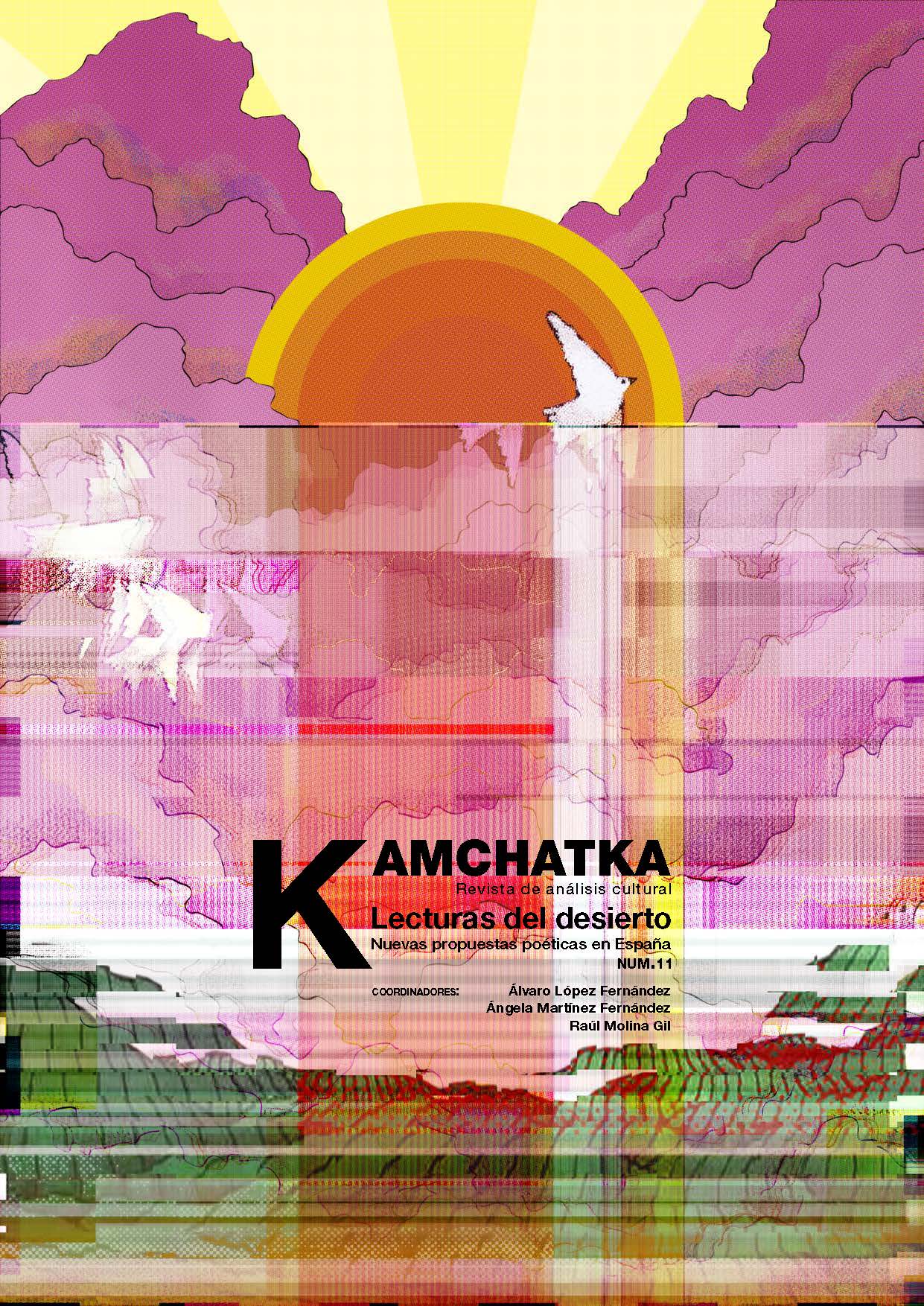The emperor’s new clothes: inbreeding, nepotism, cronyism, idols and myths in the backrooms of the contemporary Spanish poetry
DOI:
https://doi.org/10.7203/KAM.11.11423 Abstract
Abstract
The aim of this paper is to analyze some extrapoetic elements (clientelar networks, institutional influence, control of public resources, gift circuits, overexposure, etc.) that have given visibility, hegemony and power to certain poetic discourses always in line with the dominant ideology, from the seventies to the present. Likewise, it highlights how this same cultural, political, commercial and ideological framework at the service of the social deactivation and naturalization of capitalism as everyday life, all dissenting poetry has been exhausted, neglected and made invisible. This paper focuses especially on the phenomenon of “poesía de la conciencia crítica”, which has been denouncing, since the nineties, life damaged under capitalism from a radical and heterodox point of view, related to libertarian, collectivist and autonomous social practices.
 Downloads
Downloads
 References
References
Abril, J.C. (2016). “Velocidad y lentitud en poesía española contemporánea”. Sánchez, Remedios (coord.). Palabra heredada en el tiempo. Tendencias y estéticas en la poesía española contemporánea (1980-2015). Madrid: Ed. Akal: 359-368.
Althusser, L. (2001). Écrits philosophiques et politiques II. Paris: Le Livre de Poche.
Althusser, L. (2005). Ideología y aparatos ideológicos del Estado. Nueva Visión: Argentina.
Bellveser, R. (2016). “Por una recuperación del espíritu del Salón de los Independientes (Homenaje a Gregorio Morales)”Sánchez, Remedios (coord.). Palabra heredada en el tiempo. Tendencias y estéticas en la poesía española contemporánea (1980-2015). Madrid: Ed. Akal: 149-165.
Bértolo, C. (2017). “Cloacas y premios literarios”
Cienfuegos, A. (2013). “Poesía y corrupción. Un ensayo testimonial de las mafias literarias en México e Iberoamérica”. Otro Lunes. Revista hispanoamericana de cultural 30. Diciembre (2013).
García Montero, L. (2003). “Poetas políticos y ejecutivos bohemios”. Mariscal, José M., Pardo, Carlos (eds.). Hace falta estar ciego (Poéticas del compromiso para el siglo XXI). Madrid: Visor: 11-23.
González, A. (2003). “Sobre la poesía, un alegato”, Mariscal, José M., Pardo, Carlos (eds.). Hace falta estar ciego (Poéticas del compromiso para el siglo XXI). Madrid: Visor: 63.
Granados, A. (2011). “Reivindicando a Javier Egea”.
Hegel, G. W. (2008). Fenomenología del espíritu. Madrid: FCE.
Kofman, S. (1975). Cámara oscura de la ideología. Madrid: Ediciones JB.
Marx, K. (2003). El dieciocho Brumario de Luis Bonaparte. Madrid: Alianza Editorial.
Marx, K, Engels, F. (2014). La ideología alemana. Madrid: Akal.
Rodríguez, J. C. (1990). Teoría e historia de la producción ideológica. Madrid: Akal.
Rodríguez, J. C. (1999). Dichos y escritos. Madrid: Hiperión.
Rodríguez, J. C. (2003). “La poesía política de Alberti”, Mariscal, José M., Pardo, Carlos (eds.). Hace falta estar ciego (Poéticas del compromiso para el siglo XXI). Madrid: Visor.
Rodríguez, J. C. (2011). Tras la muerte del aura (a favor y en contra de la ilustración). Granada: Editorial Universitaria de Granada.
Rodríguez, J. C. (2016). “La poesía del NO (notas para una aproximación a “la otra sentimentalidad” y a la poética de la experiencia)”, Sánchez, Remedios (coord.). Palabra heredada en el tiempo. Tendencias y estéticas en la poesía española contemporánea (1980-2015). Madrid: Ed. Akal: 9-25.
Viñó, M. (2006). EL PAÍS: la cultura como negocio. Nafarroa: Txalaparta.
Downloads
Published
How to Cite
-
Abstract1916
-
Texto rescatado (Español)1134
Issue
Section
License
This journal provides an immediate free access to the content on the principle that freely make investigation available to the public, which promotes an increased global knowledge exchange.
Unless otherwise indicated, texts published in this journal are under the license Attribution-NonComercial 4.0 by Creative Commons. These texts may be copied, distributed and publicly communicated whenever the publication’s author and title are quoted and whenever they are not used for commercial purposes. In any case, intellectual property of the articles and its potential economic rights entirely belong to its authors.
The full license can be consulted on https://creativecommons.org/licenses/by-nc/4.0/. We encourage authors to disseminate papers published in Kamchatka. Journal of cultural analysis electronically, in institutional digital repository or in their websites.





